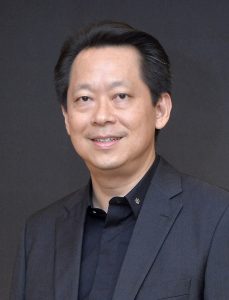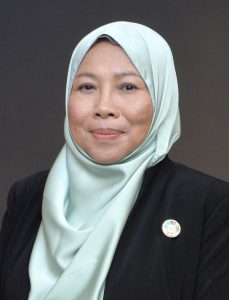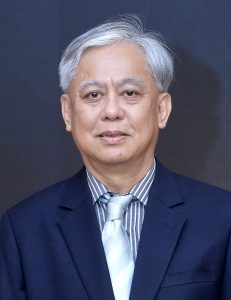
(From left) Ting, Ridha, Wong, Noraini, Chua, Wahid, Khong, Tan, Kong and Kamal at the MDA judging session.
More focus on sustainability and digitalisation this year
By Yanika Liew
Built on the pillars of the International Real Estate Federation's Malaysian chapter (FIABCI-Malaysia) and Star Media Group (SMG), the second Malaysia Developer Awards (MDA) was a monumental celebration of the performance of 28 award recipients.
The awards were assessed under the discerning eyes of 10 judges, with two chief judges. From estate agents to valuers, these industry experts were meticulously selected from a comprehensive range of disciplines involved in property and real estate.
The Malaysia Development Awards 2023 saw an additional category added to the existing five, with the newly-introduced Joint Development Awards, the Rising Star Awards, the Transformation Awards, the International Awards, and the Top-of-the-Chart Awards. The Top-of-the-Chart Awards are divided into two subcategories based on market capitalisation, ensuring that the criteria and judging for each category uphold a holistic and equitable standard.
Leading the panel of judges, the head judges ensured the integrity and transparency of the process. They are Bursa Malaysia Bhd chairman Tan Sri Abdul Wahid Omar and Klang Municipal Council president Noraini Roslan
The panel of judges also included:
- Sarawak Housing and Real Estate Developers’ Association president Augustine Wong
- Sabah Housing and Real Estate Developers Association (SHAREDA) president Datuk Chua Soon Ping
- Malaysian Institute of Estate Agents (MIEA) president Tan Kian Aun
- The Royal Institution of Surveyors Malaysia (RISM) board of building management chair Datuk Paul Khong
- Association of Valuers, Property Managers, Estate Agents and Property Consultants in the Private Sector Malaysia (PEPS) immediate past president Michael Kong Kok Kee
- Malaysian Institute of Property and Facility Managers (MIPFM) committee member Dr Ting Kien Hwa
- Malaysian Institute of Professional Estate Agents and Consultants (MIPEAC) vice president Kamal Abd Ghafur Korusamy
- Malaysian Institute of Architects (PAM) honorary treasurer Ridha Razak
Here’s what they had to say:
Wahid, who had been invited to the judging committee for the second year in a row, noted with pleasant surprise that the assessment criteria for 2023 entries included a larger emphasis on sustainability elements.
With climate change at the global forefront, developments with a focus on environmental, sustainable and governance (ESG) elements have to start at a design stage, he said.
The process would continue to the construction and building stage, as it was important for the design. These were all positive elements to reduce Malaysia’s carbon footprint, from designs that take advantage of natural lighting, airflow, the impact on heat and so on, Wahid pointed out.
He noted that there were several initiatives that developers could take, firstly in the usage of construction materials such as lighter materials that were long-lasting, materials that required little maintenance, as well as those that were sustainably sourced.
“Then you have to look at in terms of the provision of facilities, for example, the availability of EV chargers, the usage of solar panels to produce sustainable or renewable energy which will also help in terms of reducing the maintenance cost in the future,” Wahid said.
“Then you still look at the availability of community-based spaces and also in terms of the usage of more technology to reduce labour and making sure we improve on the overall efficiency,” he added.
Noraini agreed that being sensitive to the needs of the global struggle towards controlling the increase of temperature, should become the philosophy of every company that develops properties in Malaysia.
“Because it is not enough to have the authority imposing it on the companies, but it needs to come from the companies themselves that do it willingly, consciously contributing to the positive effects as far as the global climate change is concerned,” she said.
“If it comes willingly and if it is practised in every step of the way from the construction to the delivery of the project and instilling awareness to the buyers, we will come a long way from where we are now,” Noraini added.
“Developers are getting more serious in adopting placemaking in their projects now and they are actually planning well for ESG,” Khong pointed out.
He noted that many have evolved strongly over the last few years through Covid-19 and have also digitalised to improve their sales and marketing, as well as increasing their product offerings to reach and capture the target markets which have led to huge or improved sales numbers and into their profit lines.
A veteran at judging various property industry awards, Kong noted that while there was a growing awareness of ESG in the property development sector, he would have liked to see more applications of AI (artificial intelligence) in the real estate industry.
“AI can significantly impact property development by streamlining various stages of the development process, enhancing decision-making and optimising resource allocation. For instance, AI can help in design and planning, cost optimisation, demand forecasting, customer preferences and personalisation, et cetera,” Kong said.
The judging process
A majority of the judges agreed that the entries represent some of the best property development projects carried out by Malaysian developers in local and overseas property development markets.
“The entries this year were truly remarkable. Every developer showcased their utmost dedication and innovation in their projects. The level of competition was extremely high, making the decision-making process quite challenging,” Kamal said.
“What impressed me the most was the attention to detail and the commitment to sustainable development and the integration of communities. Developers are evidently putting the needs and expectations of end-users at the forefront of their designs and transformations,” he added.
Having firsthand end-user experiences as a real estate agent, Kamal had a unique insight into the wants and expectations of buyers. It enabled him to assess entries not just from an aesthetic or architectural viewpoint but also from the perspective of potential homeowners and the larger community.
“The design and innovation of certain developers stand out. Certain specifications and facility and building technology such as smart homes and integration of AI in facility management,” Tan noted.
He also noted that the criteria and scoring system had a heavy emphasis on corporate social responsibility, ESG and community-based development, rather than focusing on the product, branding and company performance itself.
As Khong would continue to explain, the main judging criteria were based on the actual submissions provided for the judges’ direct consideration. Marks were given based on their submissions as per the various selected criteria of judging.
“Both qualitative and quantitative assessments can be summed up in the ability of an organisation to be continually adaptable and robust in preparing for and overcoming unpredictable challenges, whether arising locally or globally,” Wong said.
He noted that the ethos of agility, whether incorporated into finance, technology, project management or even compliance, would provide an organisation with self-sustaining momentum, whatever the circumstance.
“For the two categories of participants, we note that the entries submitted were quite comprehensive for some and many did give a good account of their current set-up, performance and profitability, their participation in placeMaking, digital creativity and also the ESG angles,” Khong added.
He pointed out that the larger and more established companies were generally very comprehensive with their submissions and some were extremely detailed with their ongoing works.
“Due to the size and number of projects, many have incorporated various items and features in their many projects throughout the years detailing their growth, steps, strategies and projects and other developers have current projects have been carefully planned since their inception,” Khong said.
“Many of the developers have matured and grown in their development experience and have continued to outperform and adopt more new features in their later projects. Many have moved forward and won other accolades as they improved and innovated their offerings to buyers thus covering many of the required judging criteria,” he noted.
With extensive professional experience in architecture, development, heritage asset management and placemaking, Ridha had ample experience judging multiple design awards in Malaysia and overseas.
“In relation to judging together with the other judges, the wealth of experience from different fields is essential, especially pertaining to looking at the project, its significance and impact and analysing the numbers,” he said.
When it came to the projects themselves, Ting highlighted the Battersea Power Station as an exemplary overseas development, epitomising the ability of Malaysian developers to assess risks, evaluate potentials and implement a well-conceptualised mixed property development in London, UK.
He noted the level of information shared on the property development projects was extremely comprehensive.
“For the local projects, Bukit Bintang City Centre has successfully transformed a stigmatised building site and location into a successful vibrant mixed development of commercial, leisure and residential uses,” he said.
“It represents another successful public-private sector joint venture development where strengths of both sectors are tapped to create successful property development. The fact that BBCC is backed by the largest retirement fund in Malaysia adds to the confidence of investors, owners, tenants and occupiers of this project,” he added.
Looking to the future
As with multiple other judges, Wong agreed that notable focus had been given to ESG and digitalisation issues. He found that both compounded the idea that property development was a human-centric industry.
“Therefore their inclusion into MDA 2023 should encourage property developers to, firstly, consider ways in which to organically incorporate these elements, scaled to respective projects, and more importantly, to positively impact the human experience of living by integrating these principles into the entire lifecycle of the building,” he said.
Looking ahead to the real estate industry's focus for the next year, Ridha hoped to see a shift towards more projects that embrace innovative business models.
“It would be beneficial for the industry to prioritise designs that are public-centric and empower the local economy. Placemaking should be emphasised, creating spaces that foster a sense of community and enhance the overall experience,” he said.
“Additionally, I believe there should be a greater emphasis on adaptive reuse of spaces and heritage preservation, ensuring that we make the most of existing structures and cherish our cultural assets. By fostering these elements, the real estate industry can contribute positively to society and sustainable development,” he added.
On another hand, Chua pointed out that the MDA might be able to benefit from new categories for more inclusive attendance, encouraging mountain, beach and island resorts to be recognised as a new category.
“The property industry is an embodiment of visionaries realistically supported by our socio-economic climate. Innovation, whether in areas of corporate services, construction technique or property management, is best proven through repeated and refined use time over time,” Wong said.

“The design and innovation of certain developers stand out,” Tan said.

“Developers are getting more serious in adopting placemaking in their projects now,” Khong said.

Chua pointed out that the MDA might be able to benefit from new categories for more inclusive attendance.

Wahid noted that there were several initiatives that developers could take when it comes to sustainability.

“The property industry is an embodiment of visionaries realistically supported by our socio-economic climate,” Wong said.

“Because it is not enough to have the authority imposing it on the companies, but it needs to come from the companies themselves,” Noraini said.

Ting noted the level of information shared on the property development projects was extremely comprehensive.

"The level of competition was extremely high, making the decision-making process quite challenging,” Kamal said.

Ridha hoped to see a shift towards more projects that embrace innovative business models.

“AI can significantly impact property development by streamlining various stages,” Kong said.
Stay ahead of the crowd and enjoy fresh insights on real estate, property development, and lifestyle trends when you subscribe to our newsletter and follow us on social media.















































